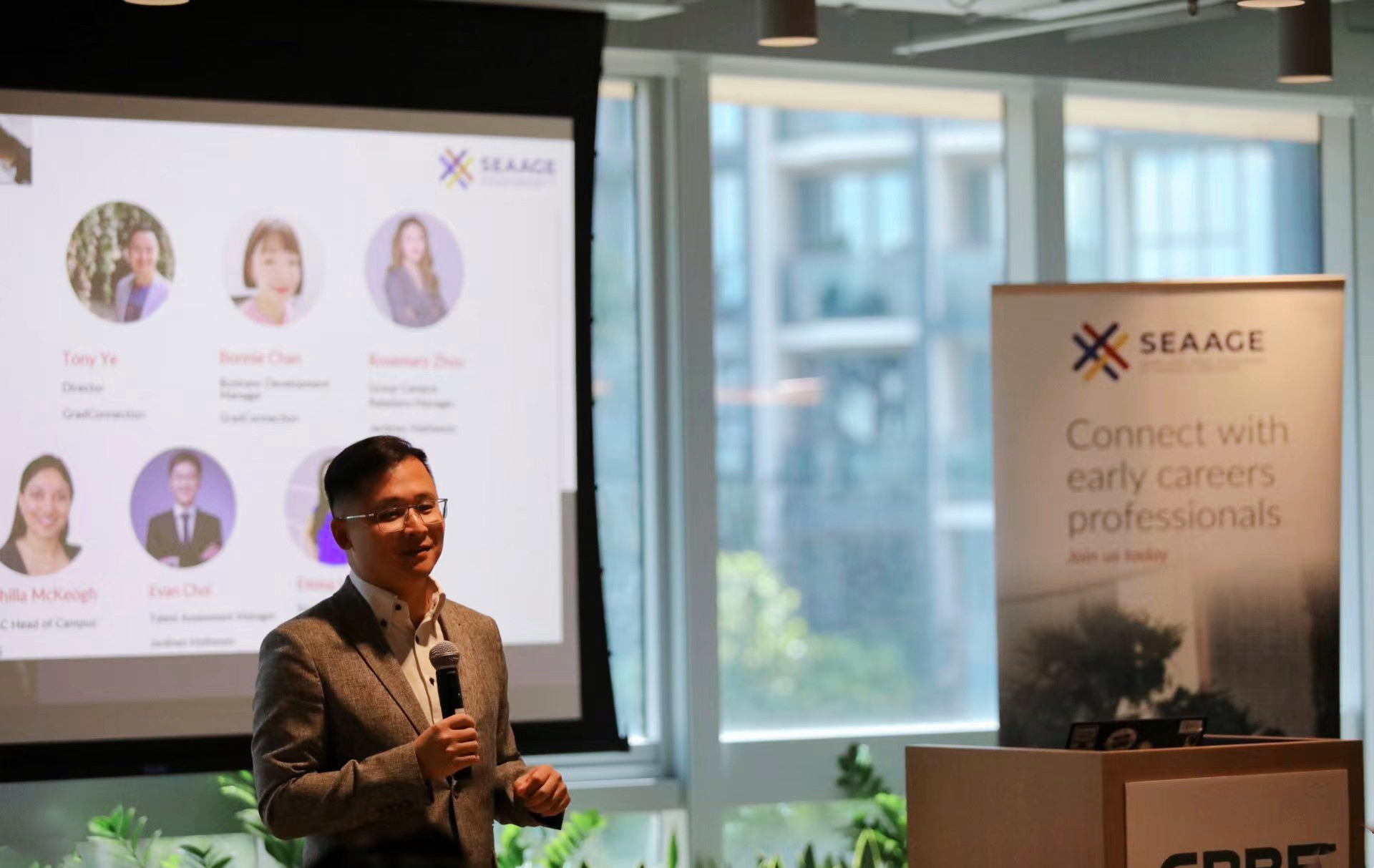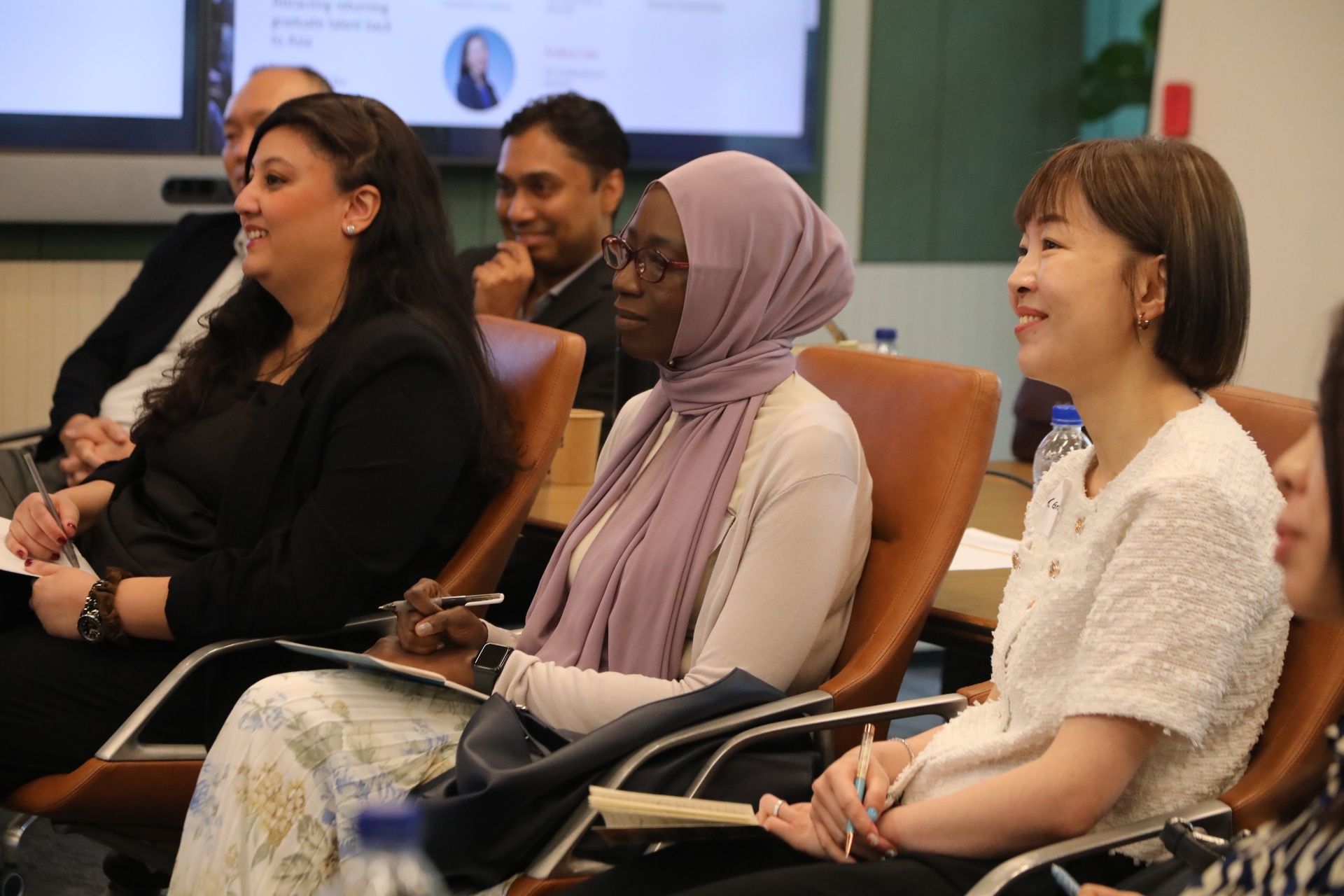GradConnection was delighted to participate and sponsor the SEAAGE Conference 2023, which took place in Singapore. The conference gathered early talent professionals from around the region and the globe and provided opportunities to learn and share insights through interactive breakout sessions, panel discussions and networking drinks.
This year, the conference theme was "Navigating the Changing Early Careers Marketplace". Read on for some of our key takeaways.
1. Belonging is a reflection of Gen Z preferences
Inequality is one of the major disruptors of our time. To address this challenge at the workplace, employers need to embrace diversity, equity, and inclusion (DE&I) as a strategic priority, as it can lead to better innovation, performance, and retention.
A key component of DE&I is creating a sense of belonging among employees, where they feel valued, respected, and supported for who they are. Belonging is also a great way to help tackle toxic organizational cultures, where employees may feel stressed, isolated, or demoralized. Belonging is a reflection of Gen Z preferences - they want to be themselves and part of a community in the workplace. They seek empathy from their managers and peers, and they appreciate feedback and recognition. To foster belonging, employers need to cultivate a culture of trust, openness, and collaboration, where employees can share their ideas, opinions, and experiences without fear of judgment or retaliation.
2. Value alignment and authenticity matter in hiring Gen Z talent
The main factors that influence Gen Z's decision in choosing a job are salary, stability, remote work opportunity and career progression. Gen Z is looking for financial security and flexibility in their work arrangements, especially after witnessing the impact of the pandemic on the economy and the workplace. They also want to work for employers who offer learning and development opportunities, mentorship and coaching programs, and clear paths for advancement.
Additionally, Gen Z cares about value alignment. They want to work for employers who share their vision, mission, and values. They are attracted to companies that have a positive social and environmental impact. They also value authenticity when it comes to employer branding. Companies need to showcase their culture and employee experience in an honest and realistic way - overselling or exaggerating can backfire and damage trust.
One way to build trust and credibility with Gen Z is to leverage social media platforms where they spend most of their time. Companies can use social media to promote their brand awareness, highlight their achievements and initiatives, and engage with potential candidates. However, rather than relying on corporate accounts or paid ads, companies can also empower their current Gen Z employees to act as brand ambassadors and share their stories and testimonials with their peers. This can have a greater impact on attracting and influencing Gen Z talent.
Companies also need to remain top of mind and sustain attention among Gen Z. This can include frequently and consistently with potential candidates, using multiple channels and formats. They also need to leverage technology and AI to streamline and optimize their recruitment and assessment processes, while ensuring a personal touch and human connection. AI can help automate tasks such as screening resumes, scheduling interviews, or sending reminders, but it cannot replace the human element that is essential for building rapport, trust, and engagement. A positive candidate experience can make a lasting impression on Gen Z, and influence their decision to join or stay with a company.
3. Employers need to highlight the benefits of working in Asia to lure returning graduate talent back
Employers are keen to hire returning graduates talent, however, not all of them are keen to return to Asia after graduation. Some of the reasons why they are hesitant to come back are the perception that work-life balance is not as popular in Asia, the lower remuneration package, and the lack of opportunities for career growth.
To overcome these barriers, employers in Asia need to showcase the benefits and advantages of working in the region. They need to highlight the economic growth, the innovation potential, and the social impact that they can offer to returning graduates. They also need to provide competitive compensation and benefits packages, as well as flexible work options that can accommodate different lifestyles and preferences.
Moreover, employers in Asia need to demonstrate their commitment to DE&I and belonging in their workplaces. They need to ensure that returning graduates feel welcome, valued, and supported in their transition. This can involve fostering a culture of respect, inclusion, and collaboration, where returning graduates can leverage their diverse backgrounds, skills, and experiences to contribute to the organization's goals.
 |  |
| Some happy snaps from the SEAAGE Conference 2023 |
